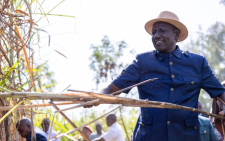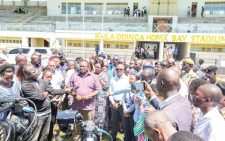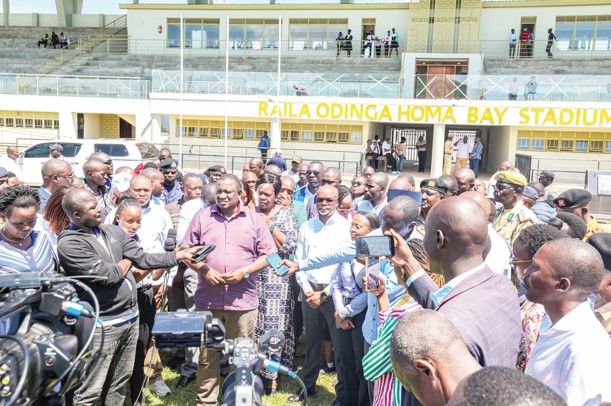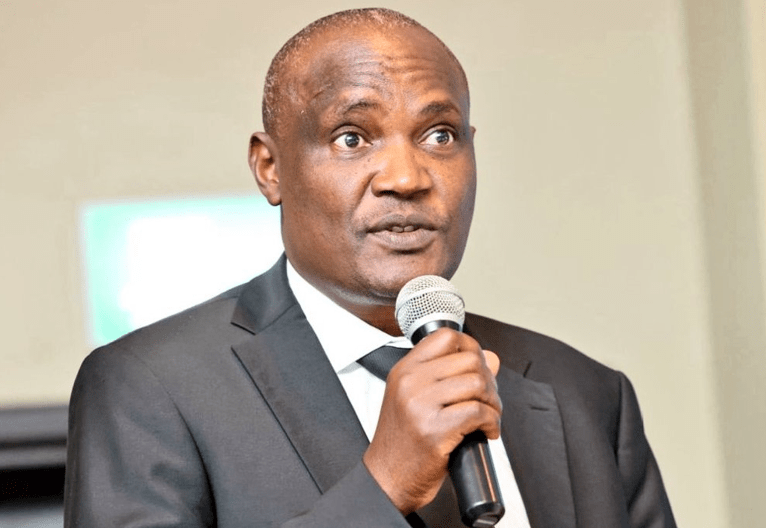DP Kindiki embarks on development tour as he inspects progress at Kenya Leather Industrial Park in Machakos
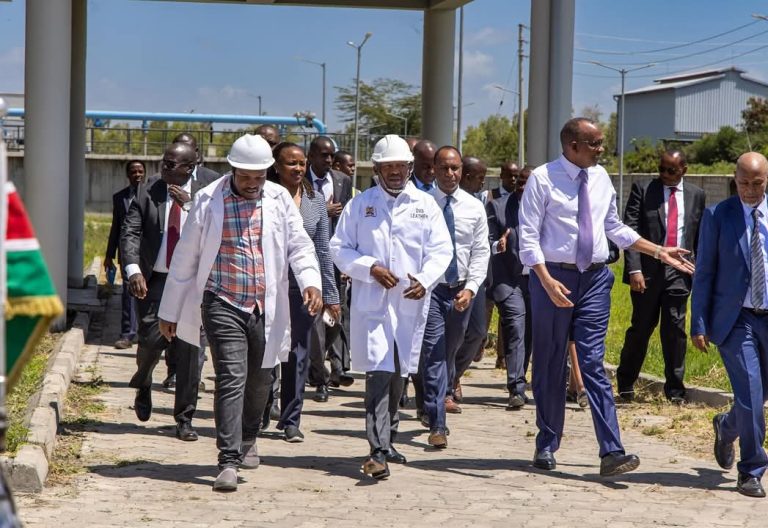
Deputy President Kithure Kindiki on Monday, January 6, 2024, inspected the progress of the establishment of the Kenya Leather Industrial Park (KLIP) in Kenanie, Machakos County.
Taking to his official X account after conducting the inspection, Kindiki reiterated the government’s commitment to transforming Kenya’s economy through value addition and industrial growth.
DP Kindiki emphasized the strategic importance of the leather industry in creating jobs and boosting the country’s economic output.
Kindiki on KLIP establishment
The second in command stated that the establishment of KLIP is part of the government’s interventions for value addition and manufacturing, to push the annual contribution of the leather industry from the current Ksh15 billion to Ksh175 billion and industry jobs from 17,000 currently to 100,000.
“Kenya’s economic transformation depends to a significant extent on growth in value addition of our raw materials and expansion of manufacturing across key value chains. The government is establishing the Kenya Leather Industrial Park (KLIP) in Kenanie, Machakos County as one of the interventions for value addition and manufacturing, to push the annual contribution of the leather industry from the current 15 Billion shillings to 175 Billion shillings and industry jobs from 17,000 currently to 100,000,” Kindiki stated.
Infrastructural developments at KLIP
Kindiki further highlighted key infrastructural developments at KLIP.
The DP pointed out the completion of a common effluent treatment plant, which will clean wastewater from factories along Mombasa Road, Athi River, and those at KLIP itself.
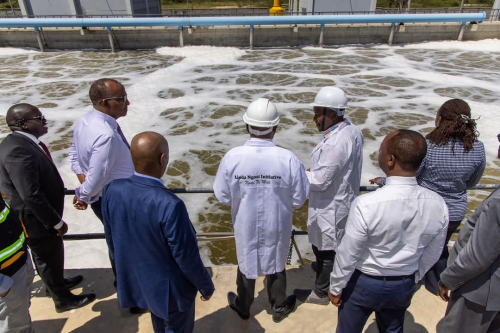
Additionally, four warehouses—two for leather production and two for finished leather products—are complete.
However, work is ongoing to finalize water and electricity reticulation systems. Deployment of permanent policing services is also being expedited to ensure security and operational readiness by March 31, 2025, the deadline set by President William Ruto.
“A common user facility of the effluent treatment plant to treat water for manufacturing leather is already complete. The effluent treatment plant will clean effluent from the EPZ factories on Mombasa Road and Athi River and from the leather factories at KLIP. While four warehouses; two for leather factories and two for finished leather products are complete, electricity and water reticulation, as well as deployment of permanent policing services are being expedited to meet the deadline,” Kindiki said.
KENANIE, MACHAKOS COUNTY, KENYA
— Kithure Kindiki (@KindikiKithure) January 6, 2025
MONDAY, JANUARY 6, 2025
Kenya's economic transformation depends to a significant extent on growth in value addition of our raw materials and expansion of manufacturing across key value chains.
The Government is establishing the Kenya Leather… pic.twitter.com/HBN7B4IHVe




